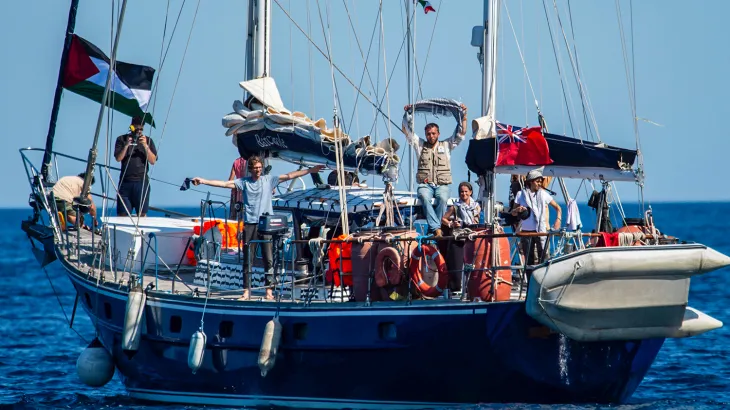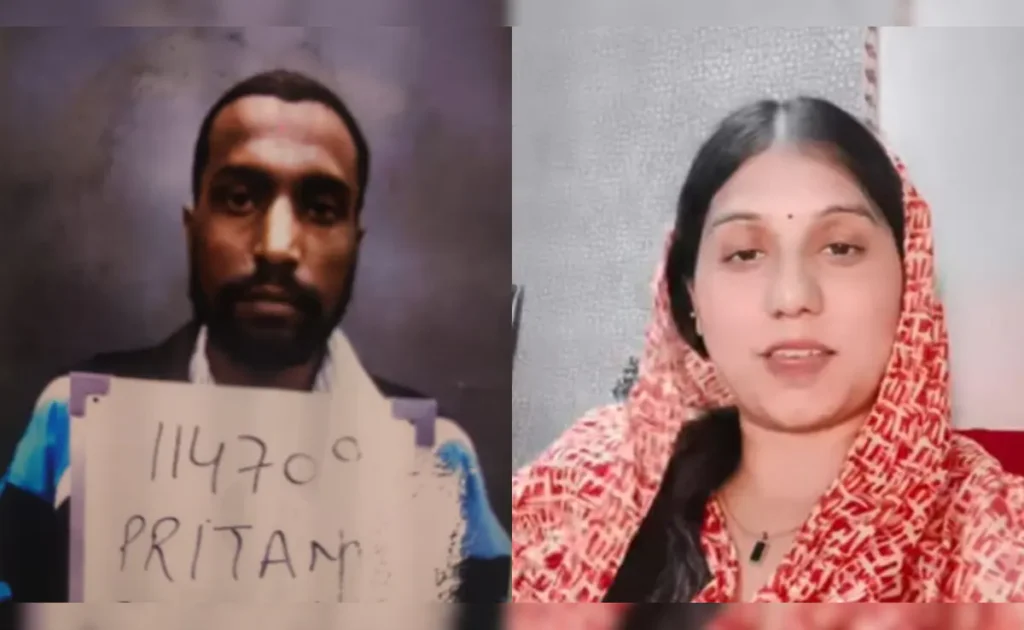Now Reading: Israeli Forces Halt Greta Thunberg’s Gaza-Bound ‘Freedom Flotilla’ Amid Rising Tensions
-
01
Israeli Forces Halt Greta Thunberg’s Gaza-Bound ‘Freedom Flotilla’ Amid Rising Tensions
Israeli Forces Halt Greta Thunberg’s Gaza-Bound ‘Freedom Flotilla’ Amid Rising Tensions

In a dramatic development at sea, Israeli commandos intercepted a Gaza-bound aid ship carrying climate activist Greta Thunberg and a team of international volunteers. The vessel, part of the ‘Freedom Flotilla’, aimed to deliver humanitarian supplies and draw attention to the humanitarian crisis in Gaza. The incident has stirred global debate, with reactions pouring in from political leaders, activists, and ordinary citizens — including many in India who are following the escalating Israel-Gaza tensions closely.
What Happened at Sea
The ‘Freedom Flotilla’ was reportedly en route to Gaza when it was intercepted by Israeli naval forces in international waters. According to officials, the interception was carried out “peacefully,” with no injuries reported. The vessel was redirected to an Israeli port, and all passengers, including Thunberg, were detained for questioning before being released.
Israel maintains a naval blockade on Gaza, citing security concerns. Any unauthorized attempt to breach that blockade is treated as a violation of Israeli law.
Greta Thunberg’s Involvement
Greta Thunberg, known globally for her climate activism, had joined the flotilla to highlight the plight of Palestinians facing limited access to food, water, and medical aid. Her presence brought significant international attention to the mission.
She later issued a statement calling the interception “unjustified” and emphasized that the mission was peaceful and aimed purely at humanitarian support. Supporters argue her action was a bold stand for justice, while critics claim it was a political stunt lacking an understanding of the conflict’s complexity.
Global Reactions and Divided Opinions
The incident has led to divided global opinions. Some see the Israeli action as a necessary move to ensure national security and prevent weapons smuggling. Others see it as an overreach that suppresses peaceful efforts to deliver aid.
In countries like India, where people closely follow Middle East developments due to economic ties and diaspora connections, reactions on social media reflect this divide. Some praise Thunberg’s courage, while others question the practicality of outside intervention in a long-standing regional conflict.
Why It Matters for Indians
For many Indians, especially those from Tier 2 cities like Lucknow, Nagpur, or Coimbatore, where youths aspire to become part of global movements or seek jobs in conflict-affected regions, such incidents offer a complex picture of international activism.
This also resonates with Indian students and professionals in the Middle East, who may face increased scrutiny or uncertainty during geopolitical flare-ups. Awareness of international law, diplomacy, and local sensitivities is becoming increasingly important.
Conclusion
The interception of Greta Thunberg’s flotilla by Israeli forces has reignited global debate over the Gaza crisis and the limits of activism. While it spotlights humanitarian concerns, it also raises tough questions about political boundaries and legal authority. For Indian audiences, especially the globally aware younger generation, this episode is a reminder of how interconnected activism, diplomacy, and regional conflict have become in today’s world.

























